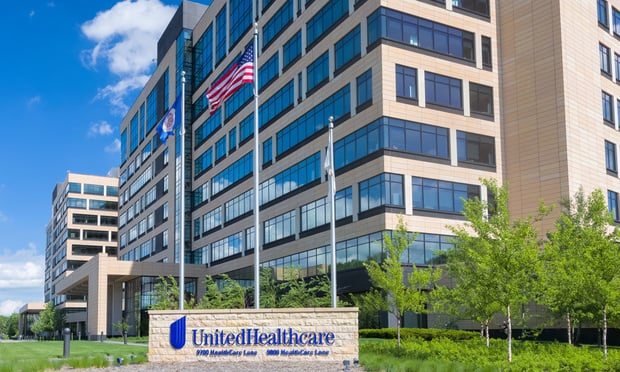 UnitedHealth's corporate headquarters in Minnetonka, Minnesota. Photo: Ken Wolter/Shutterstock
UnitedHealth's corporate headquarters in Minnetonka, Minnesota. Photo: Ken Wolter/Shutterstock
Stephen Hemsley, the new CEO of UnitedHealth Group, knows he has his work cut out for him. On Monday, he reassured investors that the insurance giant would learn from its tumultuous past year, correct course and improve future results for shareholders.
“We are well aware we have not fulfilled your expectations or our own,” he said. “We apologize for that performance, and we are humbly determined to earn back your trust and your confidence.”
Recommended For You
UnitedHealth was still reeling from last summer’s massive data breach when Brian Thompson, CEO of UnitedHealthcare, was shot and killed in December. In May, former UnitedHealth Group CEO Andrew Witty resigned on the same day that the company suspended its 2025 earnings outlook, dropping its share price by 20%. News also broke last month that UnitedHealth is under investigation for both Medicare Advantage and nursing home fraud.
Hemsley previously served as CEO from 2006 through 2017 and has chaired the UnitedHealth Group board since 2017. Since returning to the CEO position, he said he has been engaging with people both inside and outside the company.
“The prevailing theme is that people want and need an even more reliable, consistently high-performing and fully transparent UnitedHealth Group,” he said. “They had come to depend upon that -- and we will restore that with urgency. They expect us at our best. And we should expect nothing but the best of ourselves, as well.”
He pointed to three critical areas that the management group has begun to address:
- “The most immediate area of focus will be our pricing disciplines. Clearly, we have gotten things wrong. We underestimated care activity and cost trends, and generated outsized growth. We are intensely examining our approaches and have already begun to make improvements including, most notably, a significant retooling of our efforts to ensure more precise and more accurate forecasting of both care and financial activity.”
- “We are focused on Optum Health, ensuring that its operations and processes evolve quickly to support the consistent performance it is capable of. Optum Health is in its formative stages. It is critical to helping drive the essential evolution of American health care from a transactional, fee-for-service model to value-based care -- which delivers better health outcomes and does so at lower costs.”
- “Greater operational rigor and maturity for Optum Health will also afford a more solid footing to give us more reliable views of future performance. And we will work to provide our shareholders with better clarity and understanding around the financial drivers of Optum Health, particularly as we move through the final phases of the risk model transition.”
Hemsley told investors to expect a realistic second-quarter earnings report on July 29. “It has never been more evident to me that we need to reinvigorate the performance culture and disciplines that have long been the hallmark of this company to more effectively navigate through this dynamic period,” he said.
© 2025 ALM Global, LLC, All Rights Reserved. Request academic re-use from www.copyright.com. All other uses, submit a request to [email protected]. For more information visit Asset & Logo Licensing.








